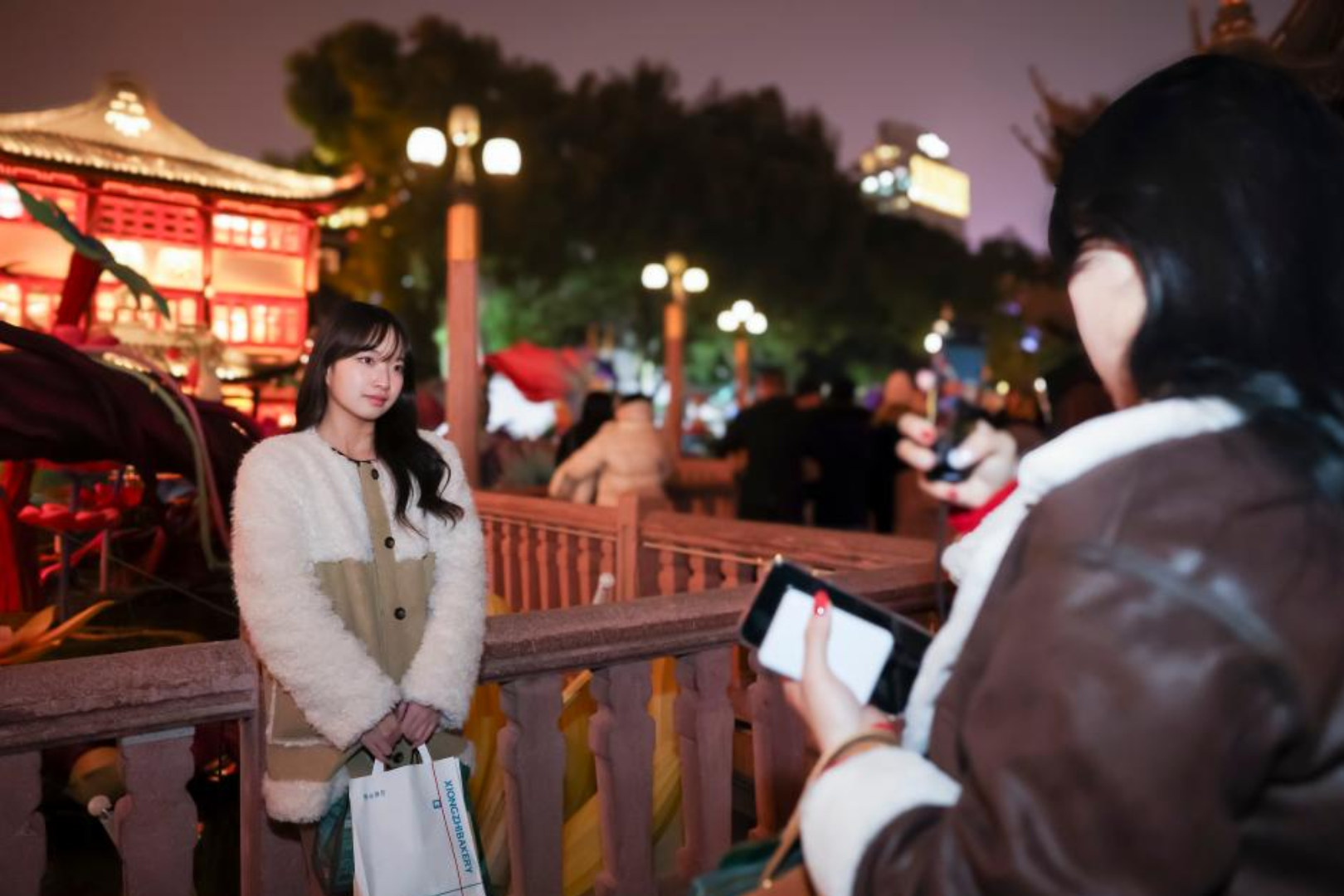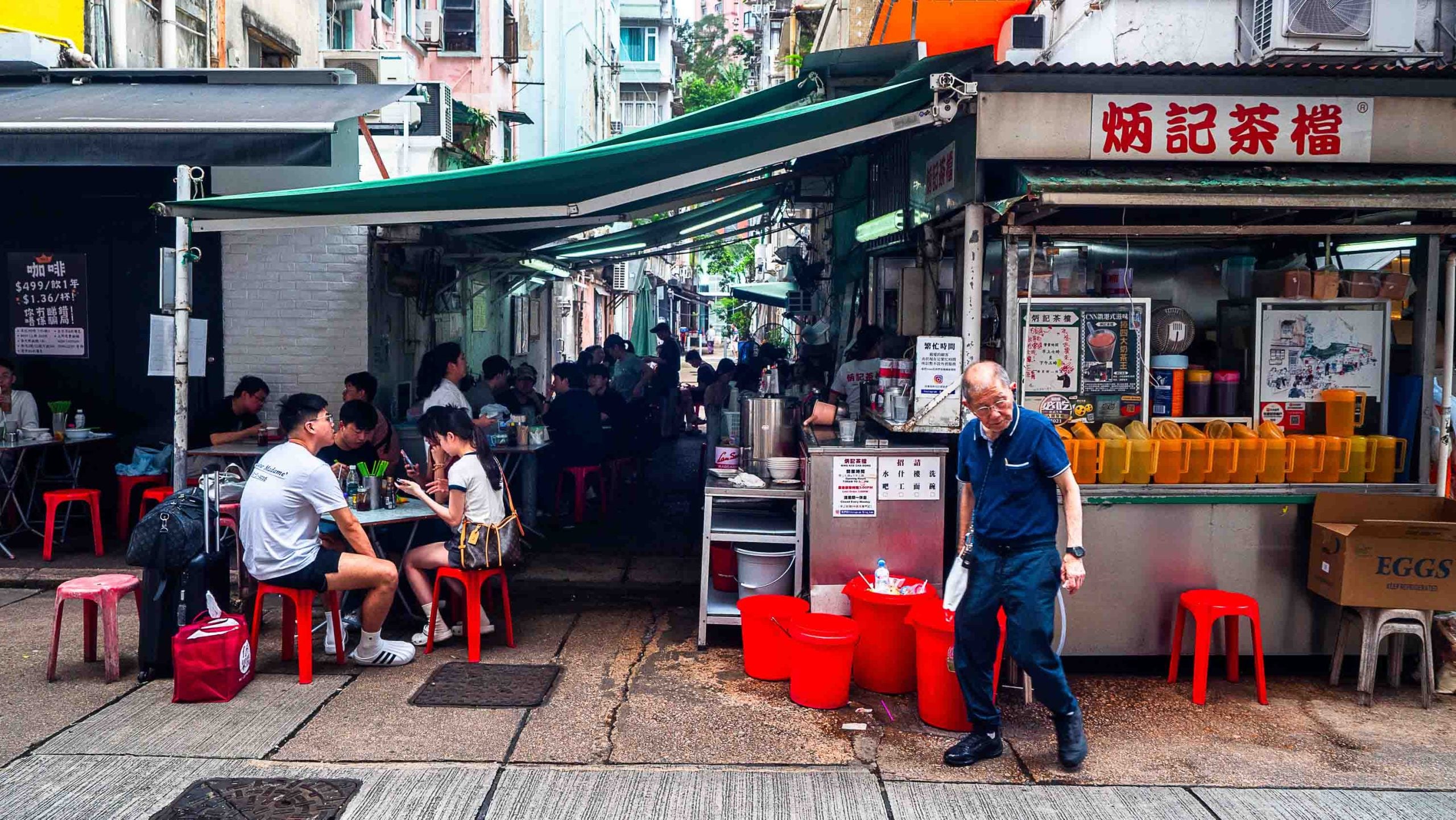I’m not a professional wrestling fan, but the Middle Kingdom Wrestling (MKW) Championship Supercard in Shanghai on September 14th may have changed that. I’m not sure what I expected, but what I got was a high-production, low-culture kitsch ballet battle between good and evil.
As the lights dimmed and the intro video played, the complexities of the outside world were thrown outside the ropes, and ring psychology took over. A simpler perspective where the heroes and villains duke it out in a contained area. Where money-worshiping team owners in snakeskin shoes and benjamin-green ties are inarguably bad, and where the audience wear allegiances on their sleeves with chants of “You suck!” or “Let’s go!”
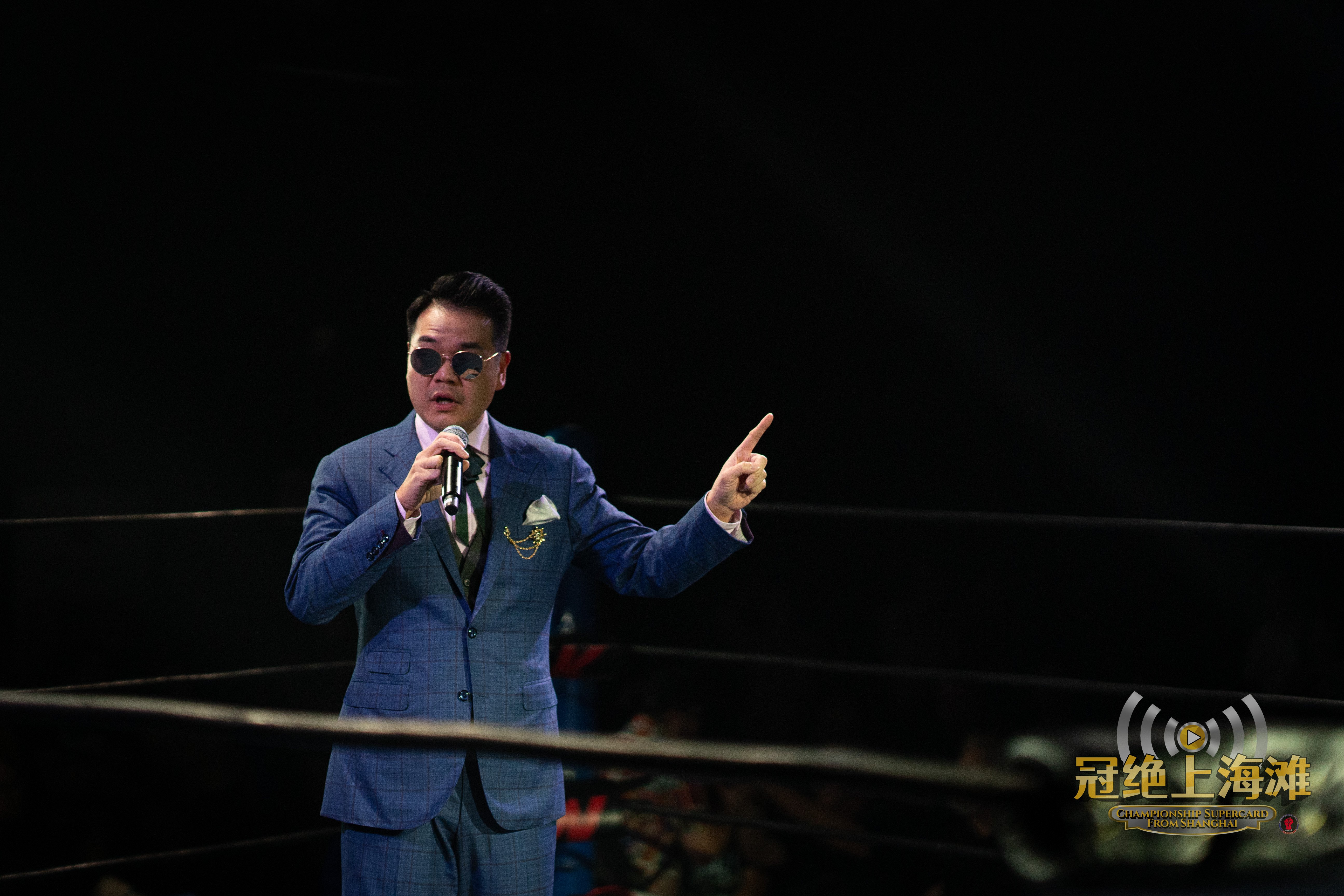
A lineup of local and international wrestlers filtered out to booming entrance songs ranging from butt-rock to traditional Chinese tunes complete with blaring suona. The whole experience was simultaneously deeply international and local, Chinese yet intrinsically linked to America, which is where this form of athletic drag evolved into its modern form from showman performances and carnival acts.
Wrestling through up and downs
At a time when international tensions are so high, it’s a wonder that the spectacle-qua-sport as quintessentially American as professional wrestling is trying to put down roots in China. But MKW is trying to push the development of this particularly yángqì (洋气) form of athletic theater.
Founded by Adrian Gomez in 2015, MKW has been holding wrestling events since even before the big wig promotions like World Wrestling Entertainment (WWE) tried to break into the country in 2016.
A number of sporting franchises were bullish on China’s massive market prior to the Covid-19 pandemic. WWE, led by then CEO and industry tycoon Vince McMahon, recruited local wrestlers like Wang Bin (ring name Tian Bing), Zhao Xia (ring name Xia Li) and others into their promotion in an effort to generate more buzz. The optimism McMahon and adjacent franchises like UFC showed for China seemed to signal a boom era for fighting sports in the country.

And things seemed to be going well for a while. Between 2016 and 2020, there was a significant amount of attention paid to what was an up-and-coming form of entertainment in the country. But Covid-19 slammed the brakes on the momentum. While individual wrestlers have achieved fame in China (most notably John Cena), the sport has yet to take off in the same way as basketball did via Yao Ming’s 2002 NBA entry. The WWE didn’t weather the heights of the Covid-19 lockdowns well, and no longer has a strong presence in the Chinese market. Before that it wasn’t all rainbows either — Wang Bin’s contract was dissolved in 2018.
But MKW is holding out, and China’s passionate wrestling community is better for it. A true grassroots champion of the parade of live-action cartoon violence that is professional wrestling, the independent MKW has taken the baton from WWE and is running with it. They’ve done four events in China since reopening, and there’s definite interest judging by the crowd at their September event.
More growth is sure to come as wrestling finds its unique identity in China, something Gomez notes MKW encourages.
Now, back to the show
The story unfolding in the ring that Saturday night, filled with a cast of colorful characters, was told through a smattering of 1-on-1, 2-on-2, 3-on-3, and 4-way matches.
There was the aptly named good guy Sunny Z, whose blonde locks revealed his honorable alliances before he’d even stepped into the ring. There was Big Sam, Uncle Money, and Andruew Tang, an evil triad under the thumb of Chairman Al, a miserly tycoon manager only in the sport for the money.

There were also those who stepped through the ropes in Mortal Kombat-esque makeup. Hailing from Dongbei, Zombie Dragon donned a mask, green teeth, and a black tongue. Chen Wenbin came out in black, red, and purple body paint, donning ribbons reminiscent of shamanic garb. Sadly, we can’t list off every character here.
One fan RADII spoke to said it was his second time coming to an MKW event. “It’s f****** great. I love pro wrestling and it’s amazing having it at my door.” Commenting on whether he feels the sport is growing, he continued, “I hope. It’s hard to tell, it’s been a couple of years, but I think it’s bigger this time. We were in a smaller sort of mall area [before]… I’d say this is bigger.”
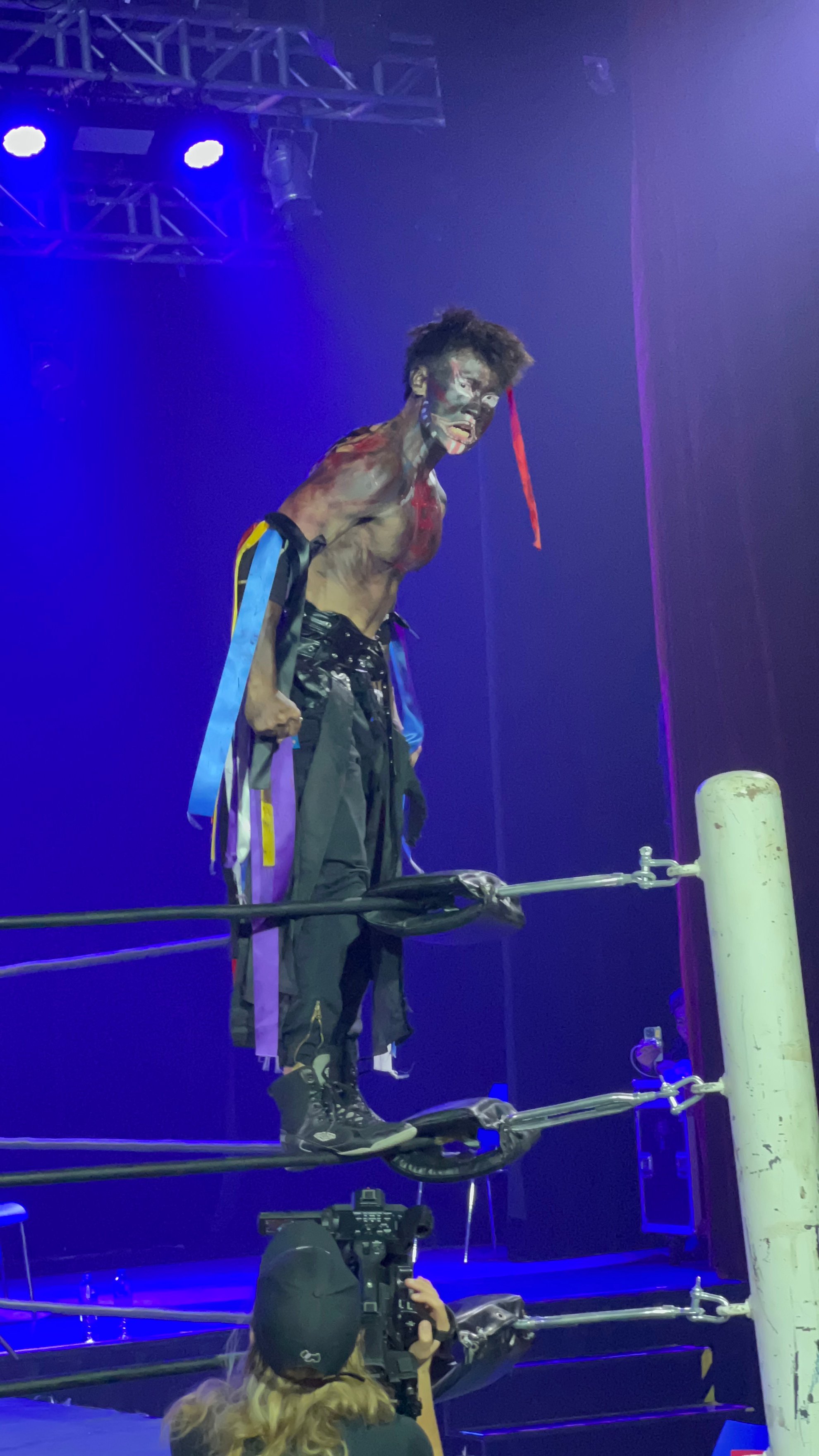
Ho Ho Lun, a Hong Kong wrestler renowned for his time in WWE and for founding Hong Kong Pro-Wrestling Federation, added that the sport has grown even since pre-Covid shows. “You see the production here? It’s amazing. The lights and look at the f****** LED screen, and look at the wrestlers. You have people coming from Dubai, Thailand, Singapore…” He further pointed out that in spite of visa difficulties and other challenges like payment ecosystems, these people are willing to show up for Chinese wrestling.
Lun has witnessed the development of the sport since its inception in China. He was at MKW’s first show in 2014, prior to their official start, and has been involved in the wrestling scene since 2004. At the time, he would cross the border from Hong Kong weekly to train at a backyard ring and gym started by the godfather of Chinese wrestling — The Slam, who also participated in this year’s MKW event.
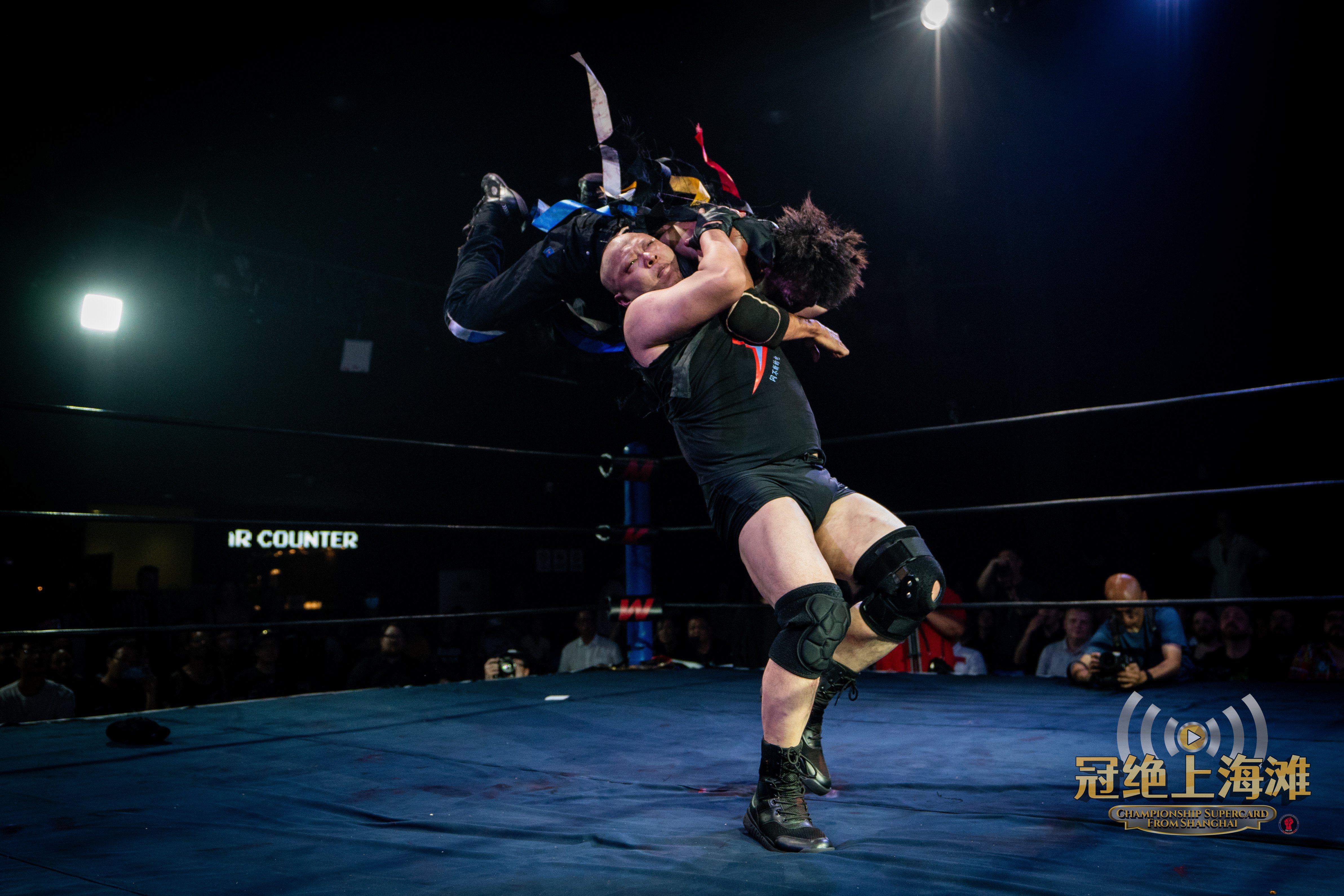
Gomez is optimistic about the future of pro wrestling in China, telling RADII, “The easiest way to show the growth and development of MKW is to compare our first event from more than 9 years ago to our events now. It’s night and day.”
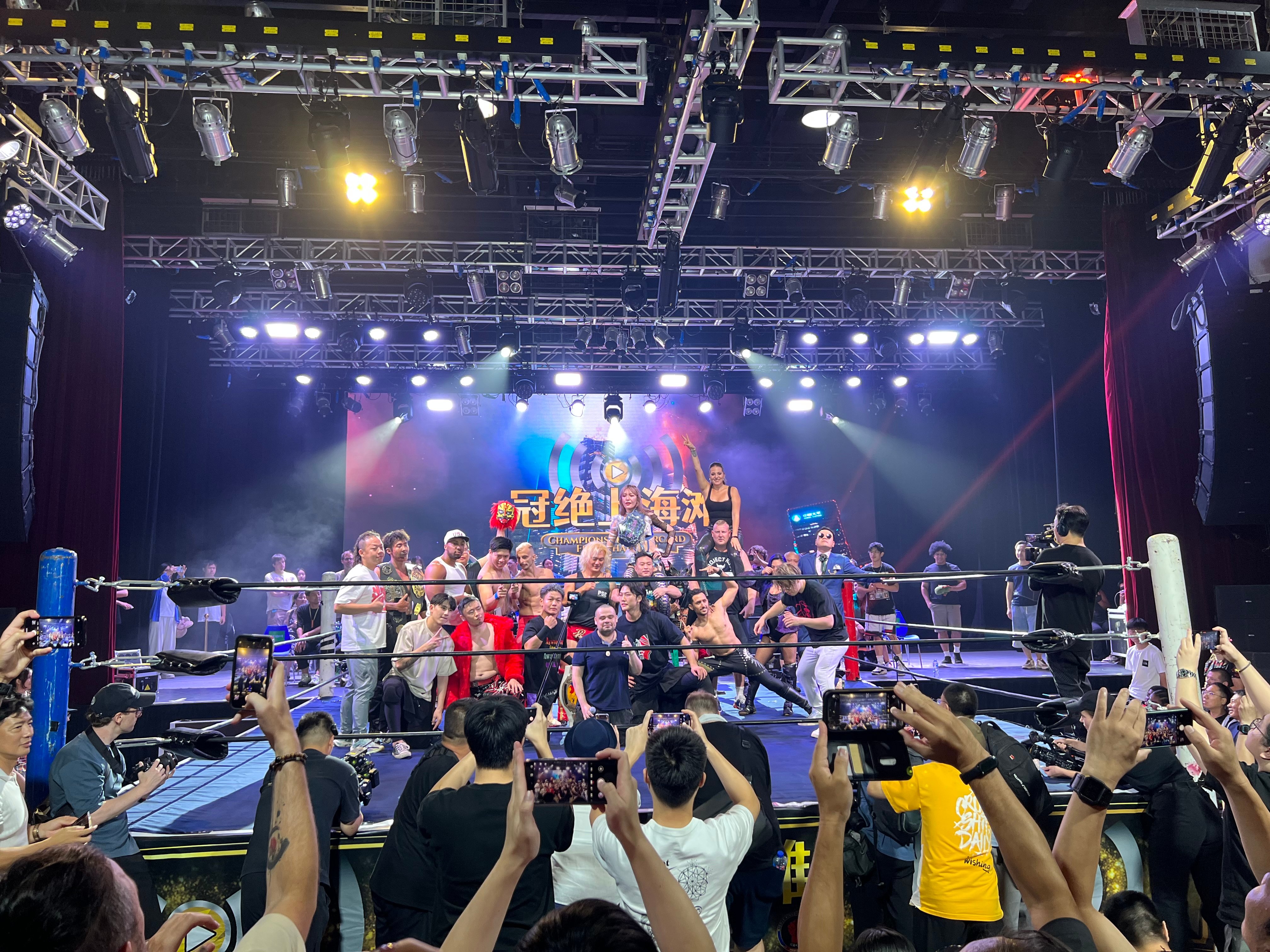
“Pro wrestling is indeed growing in China, but it’s still at a point where I think we as an industry can say we still have a long way to go. Still, with events like last night’s, we feel to be on the cusp of something very special.”
At the end of the day, MKW and the wrestlers are doing this largely out of a pure passion for the performance and show that is professional wrestling. That showed through every second of the Championship Supercard, and they deserve all the love they can get.
See you at the next match.
Banner image by Haedi Yue.






